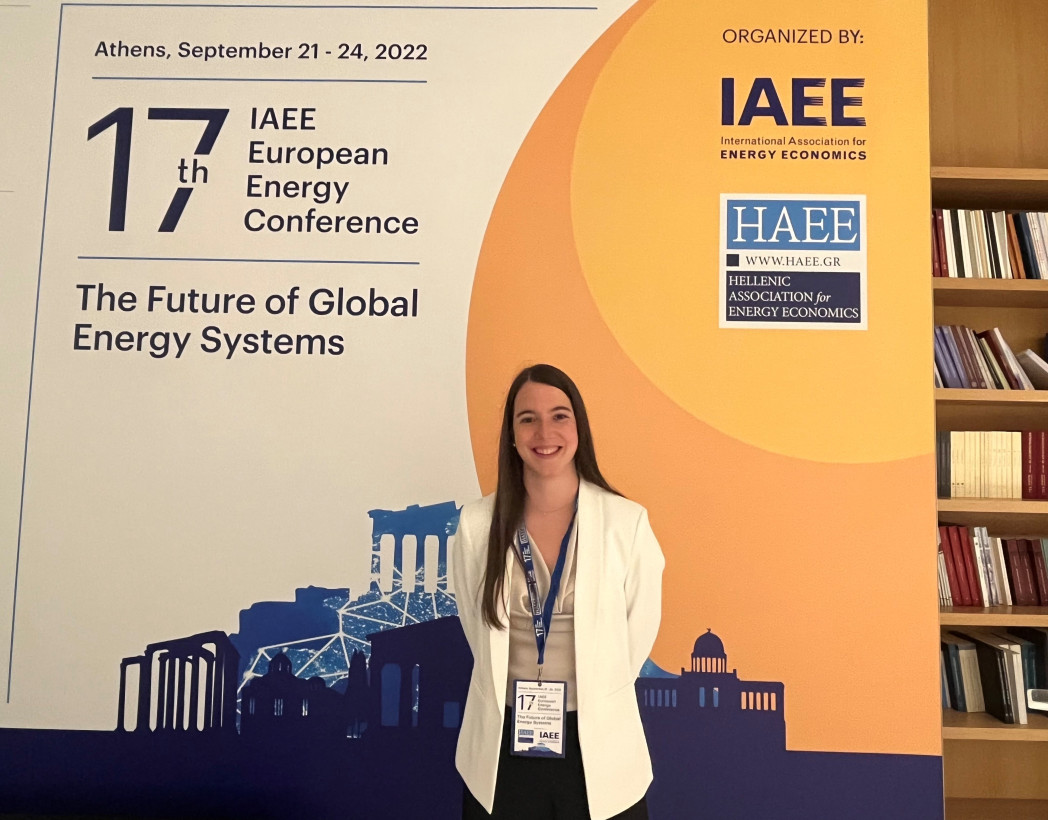
Forbes: alumna Fabia Miorelli among the best “under 30s” in Italy and Europe
Although there are still relatively few women studying engineering in Bolzano (but also elsewhere), the latest news bodes well, promising a future in which engineering will be as much a female choice as it has so far been almost a male-only one. A few weeks ago, we reported of Selena Milanovic, an engineer and unibz alumna from Merano chosen by Forbes as one of Italy’s best “under 30”. Now she is joined by colleague Fabia Miorelli who, according to the Italian edition of Forbes, like Milanovic, is one of the new Italian talents who should be kept an eye on. Miorelli has been indeed chosen among the best “under 30” for innovation and entrepreneurship in the field of energy. As if that was not enough, the former unibz student was also selected as one of the best 30 “under 30” by Forbes Europe, in the “Industry and Manufacturing” category. Definitely, something unibz (and Fabia Miorelli, of course) must be proud of.
Like Milanovic, Fabia also chose Germany as a place to put her skills and potential to good use. “Finding myself included in Forbes’ network of under-30s is without a doubt a great opportunity because it increases the chances of making connections with people driven by a thirst for knowledge and passion for what they do”, she explains as she tells us about the path she took after leaving unibz. The latter led her to her current job at the German Aerospace Center (DLR) in Stuttgart, one of 55 locations spread across the country, where she is currently working towards a Ph.D. in the Department for Energy Systems Analysis. “The DLR, in spite of its name, is active in different fields, not only aerospace and aeronautics, but also energy and transport, and this is where they felt they could use my expertise”, says Fabia. The young engineer’s Ph.D. is focused on evaluating the impact of electric vehicles' adoption on energy systems, that is, how the new electric mobility on the road is going to affect the operation of the electric grid.
The future of electric mobility, in addition to being in the hands of the automotive industry, is also in the hands of scientists like Fabia. “My colleagues and I are called upon to build mathematical models of the whole energy system. Basically, we have to figure out how much energy these innovations are going to need and to predict when and how much the generating plants will produce to balance the new energy demand”, she explains. At present time, in addition to this involvement on the mobility side, other but equally urgent demands are analyzed in the same field. We are talking about the energy crisis that has followed Russia’s invasion of Ukraine and that, this Fall, threatens to be a destabilizing factor for the European society and economy. “In practice, through mathematical models of the energy system, it is also possible to simulate the impact of unexpected changes and assess how to cope with various possible scenarios, including energy dependence and security of supply”, she says.
At DLR Fabia was hired after a working experience in Bonn, at the International Renewable Energy Agency (IRENA), where she carried out analyses of energy systems at the city level, including renewable energy integration and decarbonization strategies. “At that time a DLR site was located right behind my office so I thought I could try and apply for a position there”, she recalls, “and given my background with a master’s degree in energy engineering, I was offered a position that combines pursuing a Ph.D. and working at the Stuttgart site of the German Aerospace Center," she comments.
The discussion with Fabia then encompasses the topic of faculty and university choice. Speaking of the dearth of women in the engineering world, Fabia recalls being the only girl in her year in the mechanical engineering degree course, that started the very year she decided to enroll at unibz. That situation did not prevent her from excelling with her male colleagues. She has always been a motor and engineering enthusiast, a legacy of days spent with her father repairing car engines and a school trip to the Riva del Garda hydroelectric power plant. “I grew up 400 meters from the hydroelectric power plant, and in elementary school, after a visit to the plant where they explained to us how electricity generation worked, I was really fascinated and drew my town full of wind turbines and solar panels”, she recalls.
Her schooling seemed for a short time to follow more humanistic paths, with her attending the “liceo linguistico” in Riva. Her passion for numbers and technology though remained and Bolzano gave her the chance to cultivate it by pursuing and improving her knowledge of languages. A combination - the love of languages and technology - that still continues to motivate her today. In addition to French, German and English, which she learned in high school, to Portuguese and a bit of Spanish and Swedish, which she learned during her two-year master's program in Lisbon and Sweden, in her spare time Fabia has been studying Chinese for the past three years now. “I have now reached the B1 level”, she says with ill-concealed satisfaction, “let's see how far I can go in terms of proficiency”.
Fabia is the perfect example of how determination and commitment make it possible to overcome any conditioning, primarily that of a scientific domain traditionally reserved for men. For this reason, the engineer is often invited as a role model to explain her work and career in schools in Trentino. “I attend meetings with male and female students from primary schools to high schools in the province of Trento to encourage the study of STEM subjects, and I tell how my passion was born. The important thing is that everyone finds the spark that sets her or his passion for understanding and discovery on fire”.
(zil)